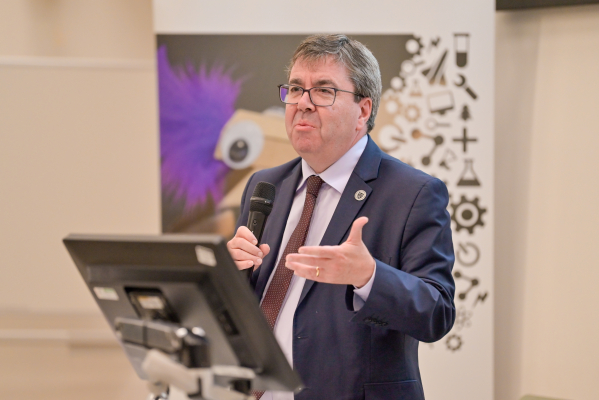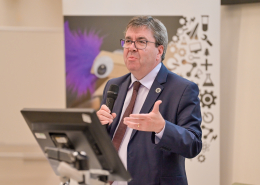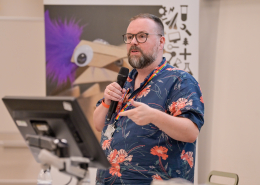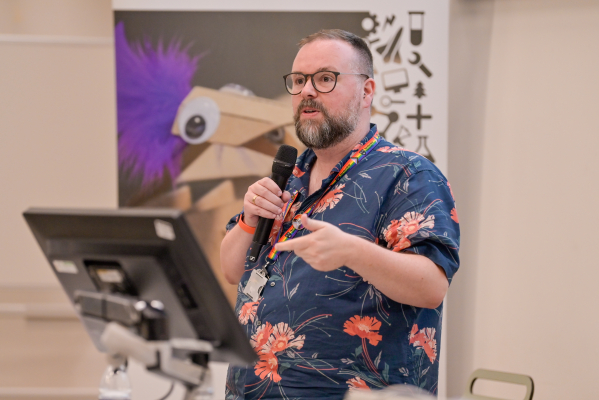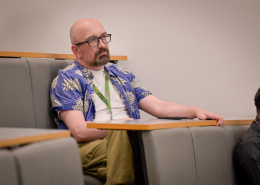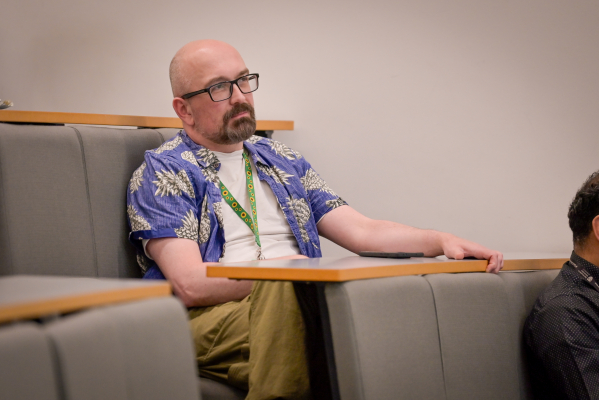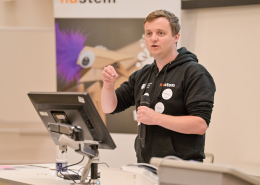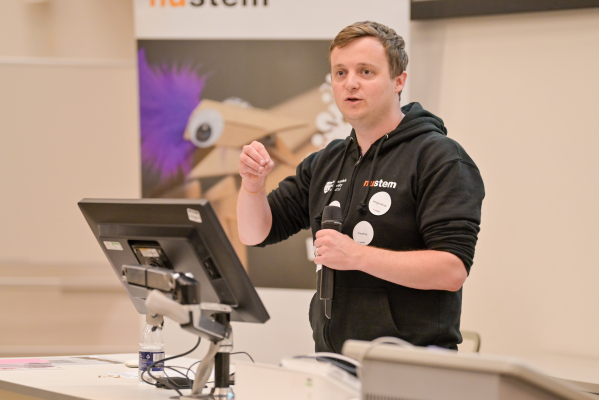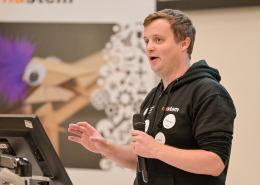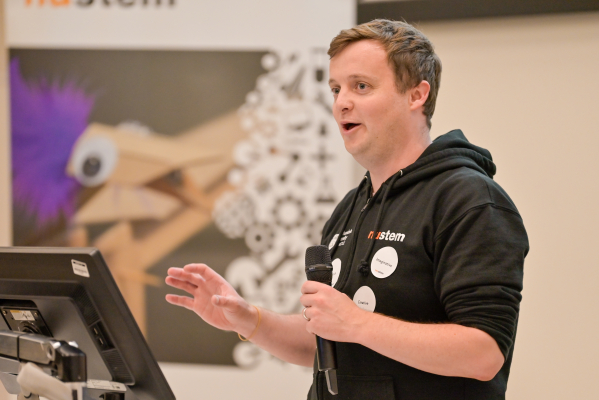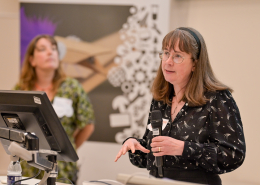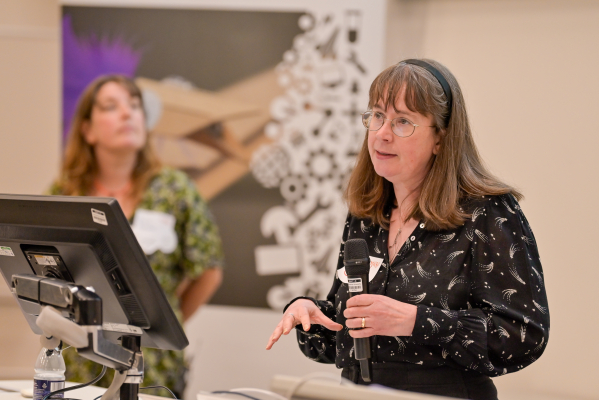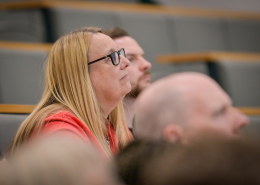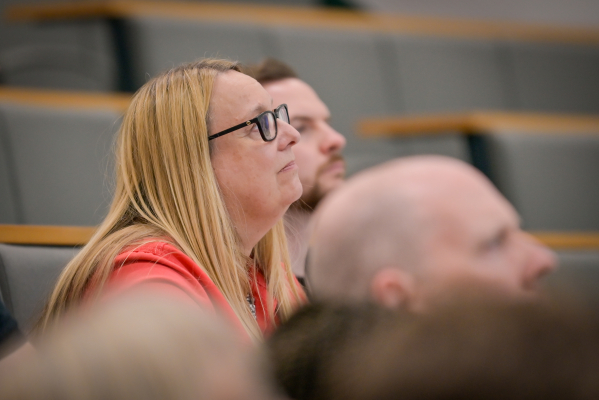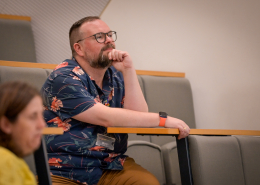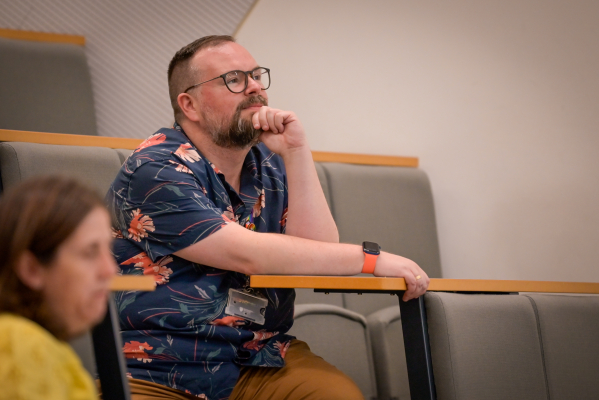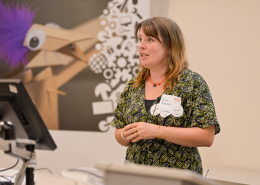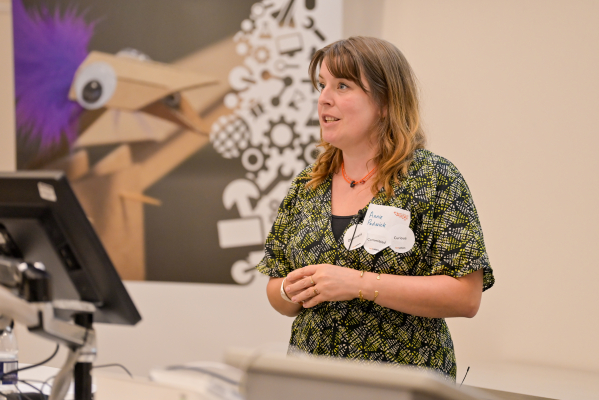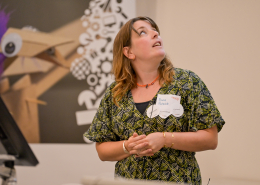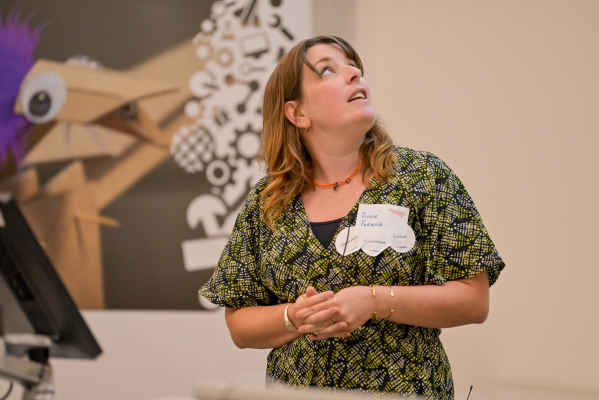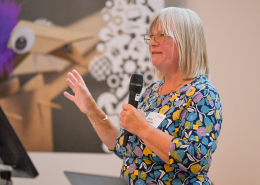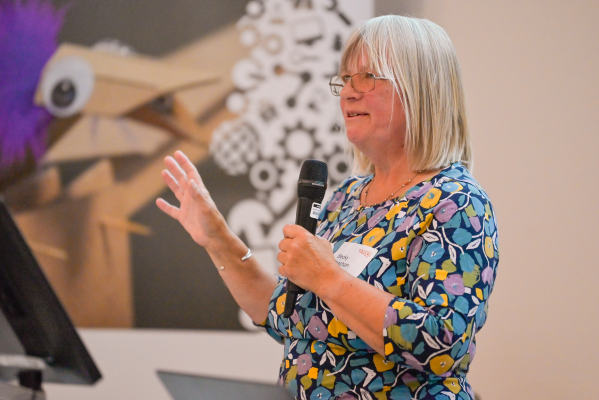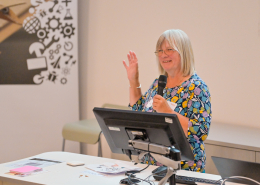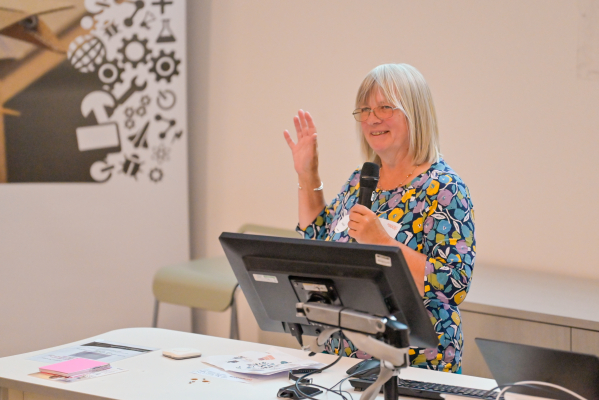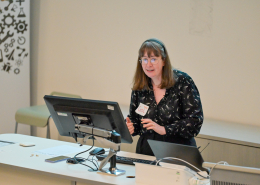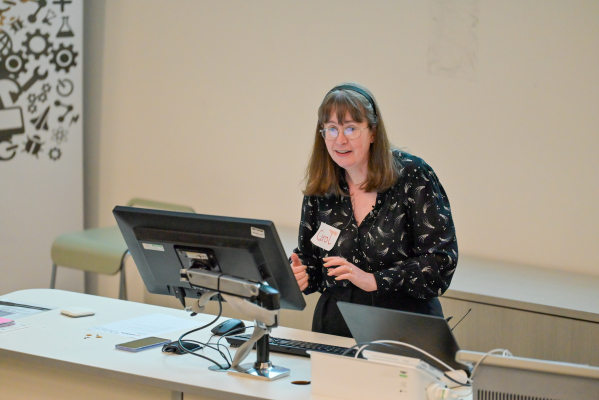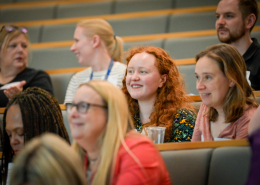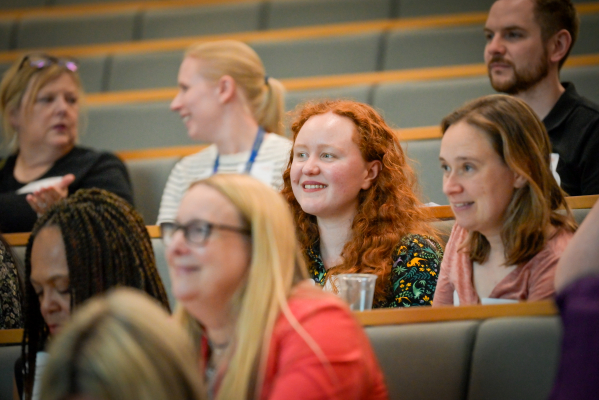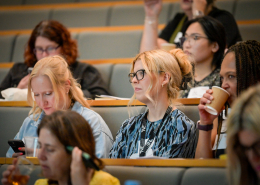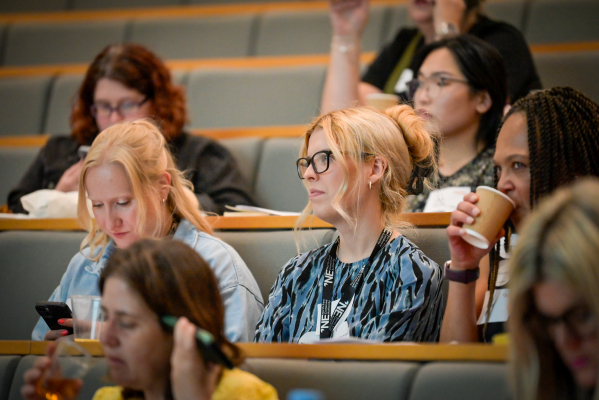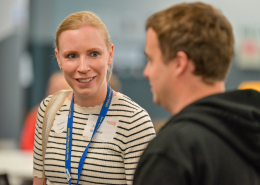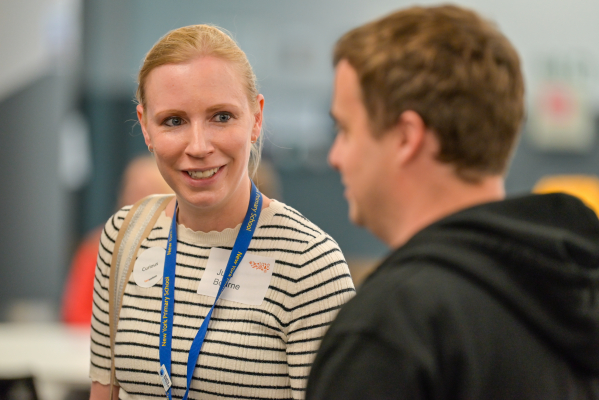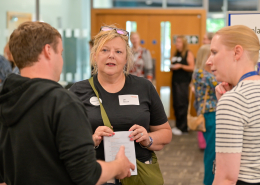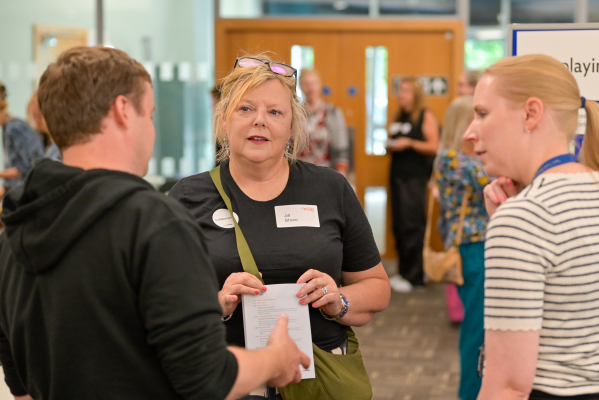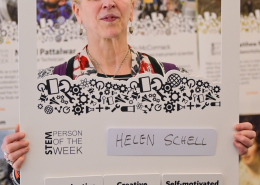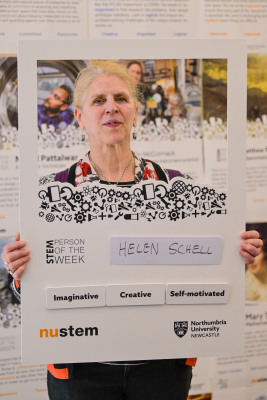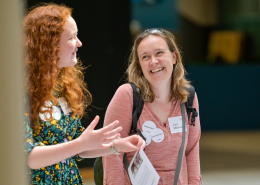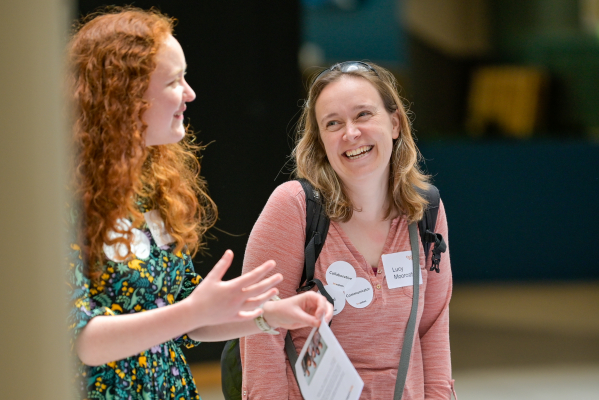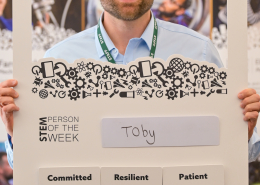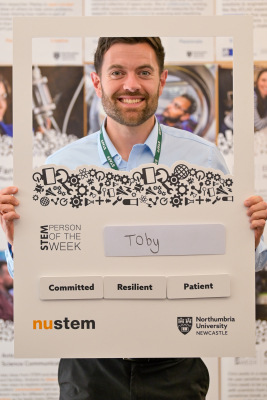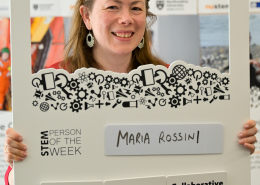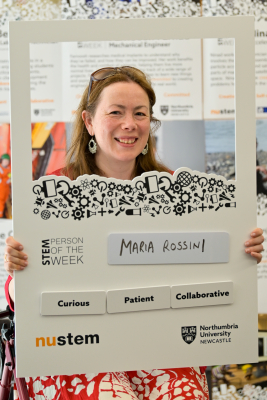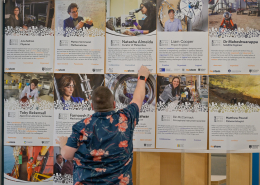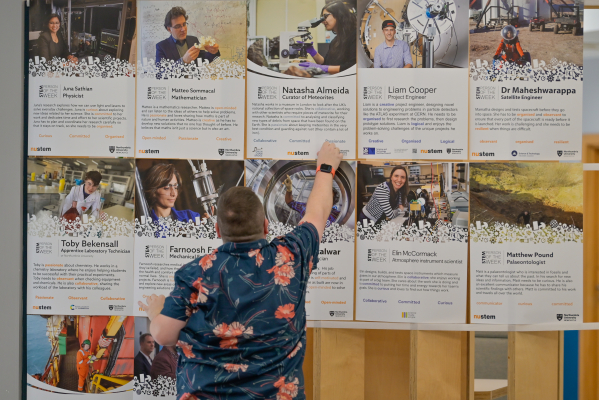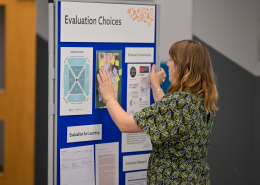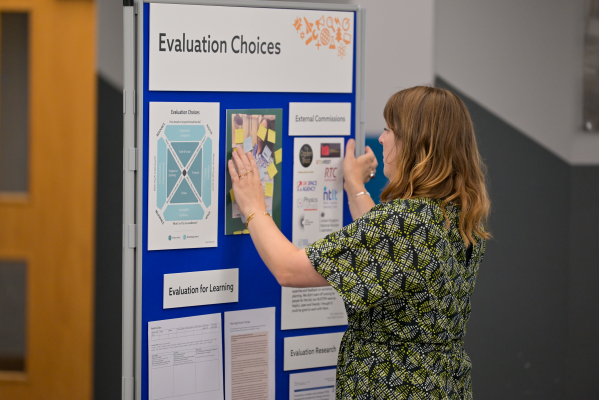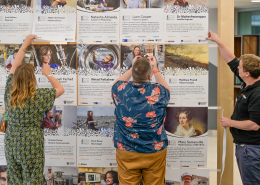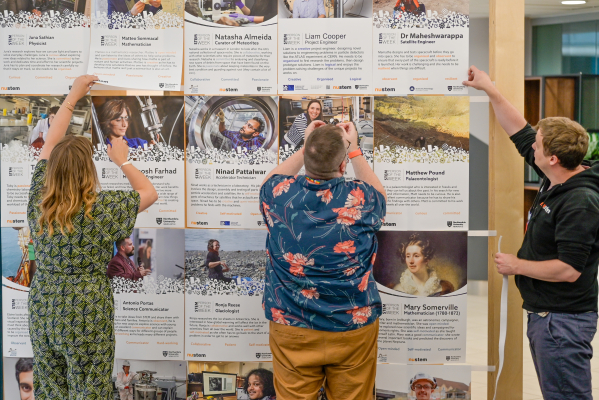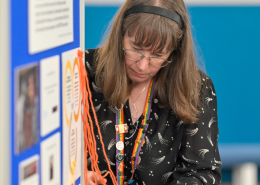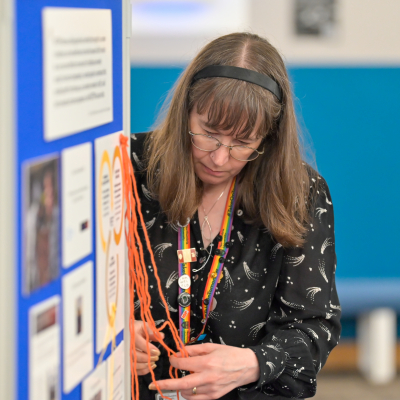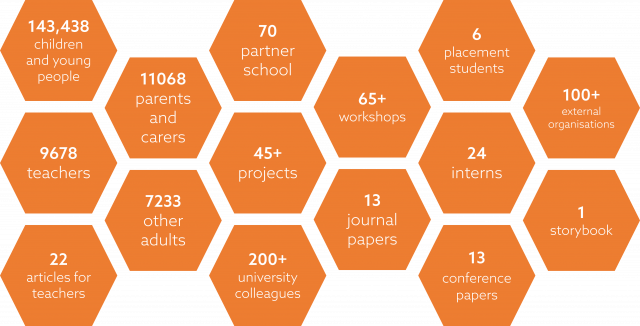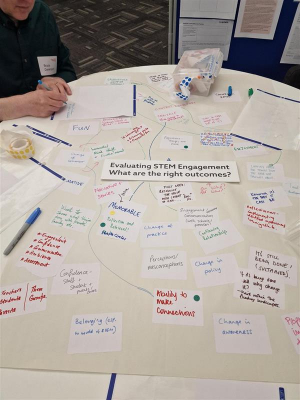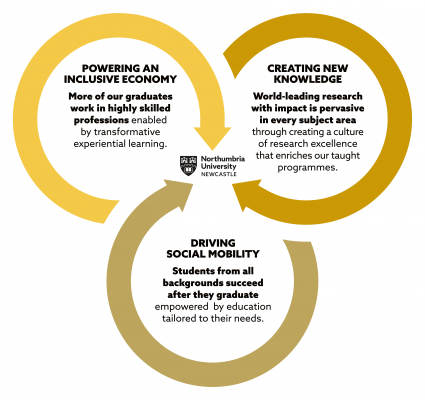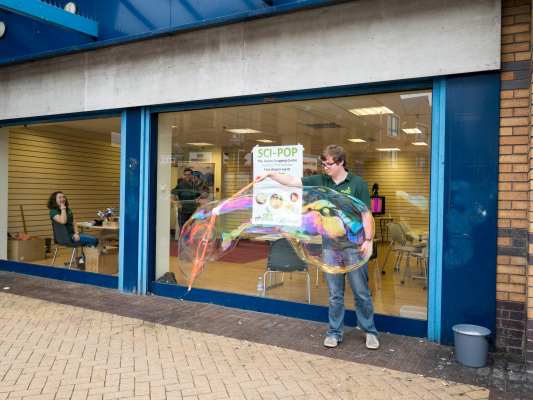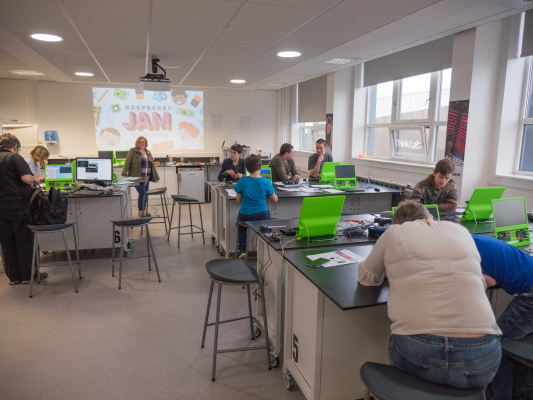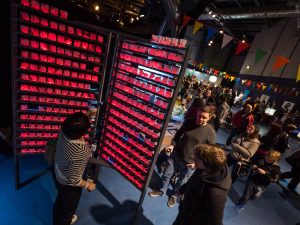The academic year 2024/2025 was the 10th year of NUSTEM working in schools in the North East. To celebrate, on 9th July 2025, we brought together colleagues and partners to celebrate this in an event we called ‘tenustem’.
The themes for the celebration were drawn from the team’s reflection on the past 10+ years – what have we learnt, what would we like to shout about, and where might we go next.
We heard from Professor Becky Strachan who was the university lead on the original project about the underlying principles for ‘Think Physics’, as it was called. These included the importance of partnership and building a diverse team, supporting a holistic approach to STEM engagement, and co-locating the project with a university STEM faculty.
Carol, NUSTEM Director, talked about the Theory of Change that we use in much of the work that we do with schools, families and other organisations. She also shared some of the ‘numbers’ from the past 10+ years.
To enable us to share the huge breadth of projects and approaches that NUSTEM takes, we then had a ‘Bazaar’ which explore different themes and you can find more information about those below.
Annie and Carol then looked at NUSTEM’s research journey. Over the past 10 years NUSTEM has developed from an outreach group that used other peoples’ research to develop evidence-based activities into a research and outreach group which now produces research that other people use to develop their activities.
Of course, we looked at possible next steps. These included the continuing delivery of the Early Years and Primary Programme, supporting a culture of Higher Education aspiration in the region, NUSTEM web resources and curriculum careers tool, and exploring participatory approaches to working with communities.
To finish off the day, Professor Andy Long, Northumbria University Vice-Chancellor gave a short talk which outlined how NUSTEM sits within the broader university.
Bazaar table themes
Guests circulated around a selection of activities and examples. Here are links and accompanying notes for each
Attributes
Notes and links to follow!
Teaching: Influencing practice
Roleplaying Careers
Partnerships
NUSTEM (at that time Think Physics) was founded as a partnership between Northumbria University, sector bodies, regional councils and education trusts and employers. Formalising relationships and sustaining them over a long period of time has allowed them to flourish and for them to continue to bear fruit.
Our approach to schools was unique at that time. Instead of focusing on delivering the NUSTEM offer to lots of schools, we formed formal partnerships with our primary and secondary school, each committing time and resource to working together with shared goals over a sustained period. This has enabled us to build strong working relationships and try out new ideas and projects such as exploring parental engagement at Battle Hill primary school https://nustem.uk/myst/ and co-design a board game with New York primary school https://nustem.uk/in-our-hands/.
Over the years we have realised that partnerships are they way forward. We work with colleagues at the University to learn about and disseminate their research and enrich outreach and teaching. We have become formal partners in many academic research projects offering science communication training, public engagement design and evaluation. Forming partnerships allows us to tap into the expertise and knowledge of others, open up new audiences, share and disseminate our ideas and support partners in STEM engagement. Over years of working together on shared projects, we have strong working relationships and ways of working.
We work closely with partners in the region. Having worked closely with University’s cultural partners the Centre for Life and with Museums Northumberland and the Discovery Museum (North East Museums) for a number of years. We aim for closer partnership with regional Universities through the supportive structures of Universities of North East England. We hold lead the North East STEM Engagement network, bringing together like-minded people to discuss common issues and shared goals.
We would be nothing without the support of our funders who have given support to our ideas, provided support, training and collaboration opportunities, and who continue to allow us freedom to try new ideas and explore new ways of working.
Evaluation
NUSTEM are committed to building understanding of STEM participation through our outreach and engagement projects. As a result, we spend time to evaluate our work well and sharing the findings with others in the sector.
The evaluations of our funded projects are publicly available as evaluation reports and blogs on our website, or are written up as research papers.
- https://stemeducationjournal.springeropen.com/articles/10.1186/s40594-023-00421-y
- https://researchportal.northumbria.ac.uk/en/publications/innovative-methods-for-evaluating-the-science-capital-of-young-pe
10 years in, we reflect that evaluating STEM engagement is much more complex than we first thought. Initially we were concerned with rigour and achieving the best design we could with what resource we had available, more recently we have been focused on how we can make evaluation relevant and useful, and achieving more participatory evaluation that serves our audiences as well (image: evaluation choices poster). Most recently we have incorporated reflective practice and participatory evaluation methods such as Most Significant Change into our evaluation plans.
Our table activity today asks participants to discuss suitable outcomes for STEM engagement evaluation and identify ones they use or think are valuable.
As well as in-house evaluation of our projects and activities, NUSTEM offers external evaluation consultancy for other organisations. We work with organisations to:
- Build evidence-base, develop programme theories and Theories of Change
- Conduct impact evaluations and demonstrate value
- Better understand how interventions work, and in what circumstances and for whom
- Give participants a voice in programming and activity design
- Support organisational development and learning.
We regularly work with companies to evaluate large-scale public engagement events, programmes and networks, and to guide evaluating planning.
University & Society
NUSTEM became a rallying point and a vehicle that brought in a number of disciplines, and one benefit was to show that research didn’t need to be a very narrow definition of some kind of traditional university concept in science and engineering. I wanted people to understand that providing benefit in other ways, as a university member of staff, could lead to rewards and career progression. And NUSTEM has done that.
Professor Glen McHale
former Pro Vice-chancellor, Faculty of Engineering and Environment, Northumbria University
Families
At this station, we showcased some of our work directly with families, or supporting others in their family work.
Plasticine insects! Encouraging children to observe the world with care and deliberation is a frequent theme of engagement work, STEM or otherwise. Our KS2 Mini Beasts loans box contains a class set of the resin-encased insects along with links to related career profiles and role models. We find children are often reticent to draw and sketch for fear of ‘getting it wrong’. Plasticine is inherently lower-fidelity than a pencil, which helps children get started. In a family learning context, it’s also easier for the parent to contribute to the child’s work.
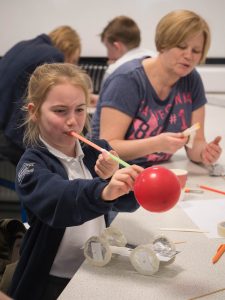 Engineering for Families is a six-week structured course for Key Stage 2 children, working alongside their parents and carers. We typically support schools to tailor the course to their individual circumstance, and to deliver it themselves. Science for Families follows a similar format, and Connect (see below) has its origins in a ‘Digital Making for Families’ concept.
Engineering for Families is a six-week structured course for Key Stage 2 children, working alongside their parents and carers. We typically support schools to tailor the course to their individual circumstance, and to deliver it themselves. Science for Families follows a similar format, and Connect (see below) has its origins in a ‘Digital Making for Families’ concept.
“The Science for Families model has changed how our school thinks about parental engagement and how we choose to work with families. The family learning model helps parents to see what children are learning and how they can be involved. It creates that buzz and excitement for science.”
— Julia Bourne, New York Primary School
One topic we discussed at the station was that some parents are reticent to enter school sites, as a result of poor experiences in their own lives or, more recently, following the pandemic. Another common theme of our work is in finding ways to make schools approachable for adults.
In the past, we’ve run or supported a range of public family events. Left-to-right, above: a pop-up shop in a local shopping centre; a Raspberry Jam physical computing drop-in day, at our lab in the university’s city campus; an interactive installation we built for Maker Faire UK.
Recently, we’ve done fewer of these sorts of events. Partly because of changing opportunities, and partly because of our increased focus on multiple engagements over a long period. However, the pieces we made for Maker Faire led to Digital Making for Families, and hence to Connect, and we continue to support public events where we can, and particularly where they help develop longer-term relationships. For example, we’ve attended several recent open days at Scotswood Garden. While we’ve not yet been successful with a funding bid with them, we will persist!
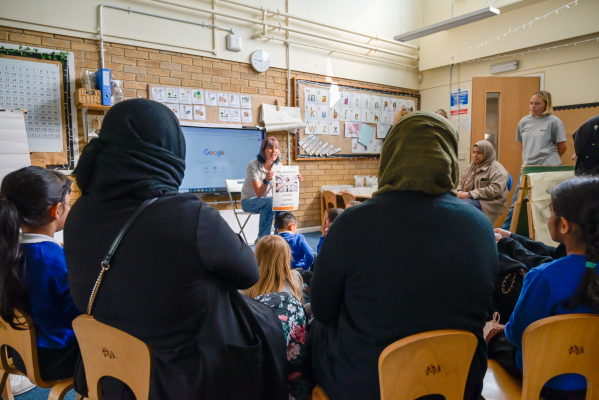 Our Play Be C resources for Early Years and Foundation Stage all include suggestions for family story and activity sessions: we find inviting parents and carers into nursery and reception settings to be an effective way of encouraging and modelling family learning. The Me, You and Science Too project explored the factors involved in making such interventions accessible, ensuring as many families as possible felt able to participate.
Our Play Be C resources for Early Years and Foundation Stage all include suggestions for family story and activity sessions: we find inviting parents and carers into nursery and reception settings to be an effective way of encouraging and modelling family learning. The Me, You and Science Too project explored the factors involved in making such interventions accessible, ensuring as many families as possible felt able to participate.
- Davenport, C, Padwick, A & Shimwell, J 2024, ‘Using a behaviour change framework to develop an Early Years literacy and science project to support parental engagement’, Journal of Emergent Science, no. 27, pp. 5-14. Available from Northumbria University Research Portal.
- Davenport, C, Heslop, K, Padwick, A & Shimwell, J 2024, ‘“We would just assume the wolf would be a boy…”: critical engagement with children’s literature by Early Years Educators’, International Journal of Early Years Education, pp. 1-17. https://doi.org/10.1080/09669760.2024.2444876
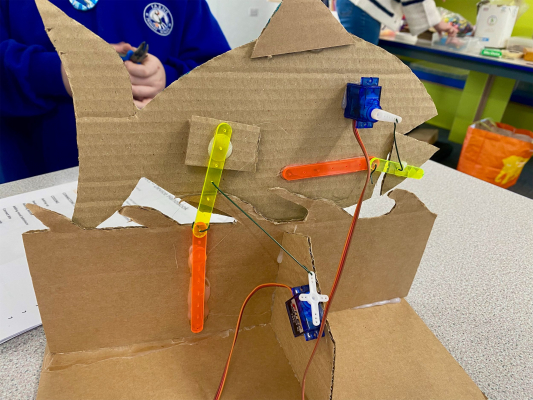
A mechatronic fish, made by a family taking part in a Connect workshop
Connect was a recent collaboration with the Making Studio team at the Life Science Centre, funded by the North of Tyne Combined Authority (now the North East Combined Authority). In a four-hour workshop, families made personal, whimsical, often ridiculous mechatronic puppets. They were networked, exchanging ‘mood’ messages with each other long after the workshops. The sessions were challenging, introducing new ideas about mechanisms and motors, inviting families to take real pride in their achievements.
We’re in the early stages of exploring the value of the project to the nascent research community assembling around the idea of ‘computational tinkering.’ Between custom hardware, ‘v2′ software, and observational studies of families, we’ve a lot to do. Our PhD student Amelia is working on a related topic, exploring families’ attitudes to overcoming obstacles in computational tinkering and playful learning contexts.
STEM Communities is an STFC-funded collaboration, led by our friends at Woodhorn Museum. It’s working with local families over a sustained period of time, exploring topics of relevance and value to the community.
The project encapsulates (and extends) everything we’ve learned about being responsive and accessible to communities, sustained engagement, and the perceived value of family learning. We’ll be excited to share our learning as the project progresses.
Beyond STEM
Notes and links to follow!
The Next Ten Years
We shared some thoughts about where we are now, and where we’re heading in our second decade.
Early Years & Primary Programme
Notes and links to follow!
Supporting a culture of HE aspiration in the North East
Notes and links to follow!
Web Resources and the Curriculum Careers Tool
Notes and links to follow!
More participatory approaches to working with communities
One of the things I would be keen to progress over the next 10 years would be more participatory approaches to working with communities, and increased use of participatory evaluation methods.
While looking into parental engagement we discovered Joyce Epstein’s Partnership model, which presents three overlapping spheres of influence around a child, schools and families, and community partnerships. Community partners can be faith-based groups, voluntary organisations, community or uniformed groups. In NUSTEM’s work we have slowly moved towards working with communities, as well as other key influencer’s parents and teachers.
With our Creativity Clubs project one of our key findings was that it was not enough just to be working in a community centre. We should have created the space and time to include them as partners in our project bid and activity design. Without this we missed out on valuable insights of what works well in the community centre, and with that community, and the project wasn’t as good as a result.
Since then we have been inspired by resources coming from other in community engagement best practice NIHR’s 10 Principles of Community Engagement, and the ASDC’s Inclusion Handbook. As a result we have begun to explore how we can work more equitably and create longer-term relationships with community organisations.
We have been developing our use of participatory evaluation methods. In STEM Communities we have used participatory evaluation methods to listen to participants and define evaluation outcomes which are important to them.
Annie Padwick, Research Fellow for Evaluation and Social Research


